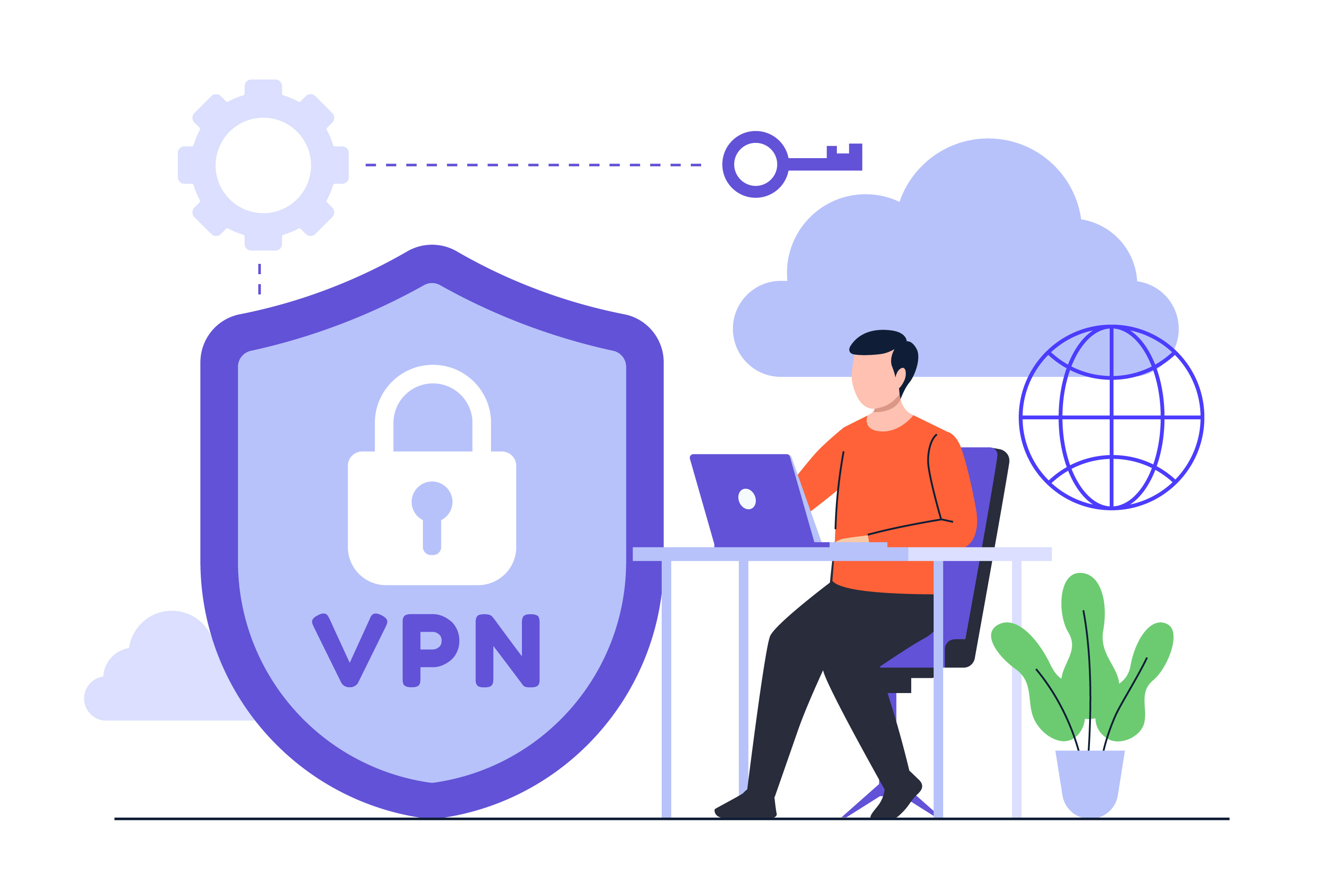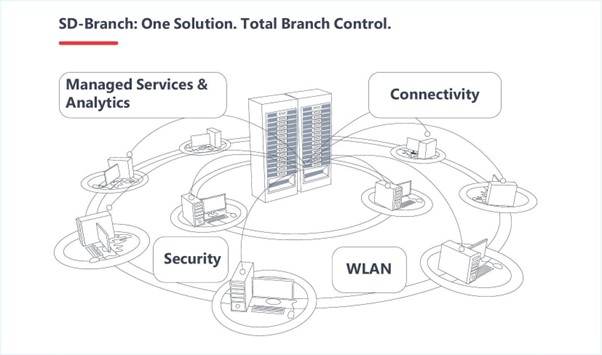Dedicated vs Static: The Best IP VPN For Your Business
-
April 23, 2024
-
7 min read

New technologies bring forth new challenges. In recent history, 15 million Trello users faced a mass data leak containing their names and email addresses. While Trello notified that this was not a case of unauthorised access, it still adds to the increasing number of cyber threats that have surfaced across the world.
This is where preventive measures like the use of Internet Protocol Virtual Private Network (IP VPN) come into play. Businesses are responsible for a great deal of sensitive data, and there has been growing investment in IP VPNs. This has led the VPN market to reach an estimated value of $107.5 billion by 2027. With 66% of users already using VPN to protect personal data and 80% of them using it to strengthen their online security, the VPN demand is at an all-time high. However, selecting the right IP VPN between static IP vs dedicated IP is another critical decision that depends on a company’s existing Internet service, requirements, and future goals.
What is an IP?
Before choosing between static IP vs dedicated IP, businesses must explore the intricacies of these technologies, beginning with an IP address. The Internet Protocol (IP) address is a unique identity given to a device that can access the Internet network to ensure smooth data routing and communication. Without an IP address, devices will not be able to communicate with one another and therefore be unable to transfer information.
On the other hand, an IP VPN falls within the larger field of Wide Area Network (WAN) technology. One of its major advantages lies in its ability to offer a secure passage to a company’s internal network by leveraging public internet services for remote users. Moreover, the reason behind businesses investing in IP VPNs is their strong capabilities surrounding data management, security, and accessibility.
Since IP VPNs use Multiprotocol Label Switching (MPLS) technology unlike traditional VPNs, they offer better reliability. This not only makes it a powerful source of security but also a compatible resource for legacy systems.
Benefits of using a VPN
In the digital age where Artificial Intelligence is no longer a myth and deep fakes are rising concerns, data privacy and security tools are a growing business requirement. To ensure all sensitive data are well-guarded and hidden from potential hackers, VPNs, no matter static vs dedicated IP, provide a protective shield over transmitted data and encrypt them to disable any unauthorised access.
Unlike other tools, the encryption provided by VPN works holistically. Every data that is transmitted from one source to another is heavily encrypted, and there are no loose ends.
Moreover, it offers remote accessibility to employees, upholds standard risk compliances (GDPR and CCPA), and is highly cost-effective. With people already using it for personal data and 50% of users using it on public Wi-Fi connections, businesses can easily rely on VPNs for its versatility and strong suite of functions.
1. With a Dedicated IP Address
- Consistent service
Using a Dedicated IP VPN enables a constant source of service, streamlining all access routes for remote servers, systems, banking operations, and devices. This provides an improved security system by reducing the risk of unauthorised entry points and frequent configuration requirements.
- Block-list security
Dedicated IP VPNs can avoid being blocked by continuously used servers from shared IPs. This allows the server to access all online resources, despite locations, to offer consistent service.
- Remote accessibility
A Dedicated IP VPN can provide more flexibility to employees due to its ability to allow remote access to company resources, including office networks and internal data. This allows employees to utilise the stable network services from their companies to complete their tasks and streamline operations, hence increasing their productivity without the need for any other device configuration.
- Improved security
Dedicated IP VPNs come with multiple layers of security, including anonymity and encryption elements. These features can help businesses collect useful insights from the Internet, without having to worry about any data breach. They can also customise these features according to their requirements by using the IP access controls.
- Seamless hosting
Using a Dedicated IP VPN provides seamless hosting services. Due to their constant nature, users can have a seamless service without any disruption caused by server changes.
2. With a Static IP Address
- Identifiable address
A VPN with Static IP offers a permanent IP address. This is very useful for devices or applications that undergo monitoring and need to be identified unfailingly. Companies can use this IP to host video game servers, websites, and other hosting services as it is highly reliable and consistent.
- CAPTCHA and ban-proof
VPN with Static IPs can easily avoid unwanted CAPTCHAs and robotic layers to provide uninterrupted remote access to servers. Additionally, it can also avoid the risks related to IP bans due to its ability to bypass popular VPN IP addresses. This enables it to offer continuous accessibility and is great for IP-sensitive banking operations.
- Improved controls
Using a VPN with Static IP can strengthen security measures with more strict protocols using the IP’s access control settings that offer a larger control over network security. This feature is a great asset for companies whose focus lies on technical security and operations related to sensitive use cases. The Static IPs play a critical role in identifying existing servers from unauthorised personnel.
How to choose between Dedicated or Static IP for your business
To make business decisions easier involving the choices between Dedicated Line vs Static IP VPNs, refer to the table below and select the one best suited to the company’s requirements:
| Component | Dedicated IP VPN | Static IP VPN |
| Security | Dedicated IPs provide advanced security features that can protect a company’s sensitive data. This can include transactions, user data, and behaviour. | Static IPs provide an additional layer of security that can handle sensitive data. |
| It can implement privacy measures to protect sensitive data containing transactional details. | It can easily bypass unnecessary CAPTCHAs and filter risks. | |
| Consistency | Dedicated IPs are constant networks and are great for multiple online activities. | Static IPs are permanent networks that are highly reliable. |
| It enables streamlined hosting services and offers remote accessibility. | It serves as a great network for websites, games, and other online services. | |
| Technical Requirement | Setting up Dedicated IPs requires technical knowledge. | Setting up Static IPs requires network-based knowledge. |
| IT teams must be able to handle Dedicated IP configurations. | IT teams must understand the Static IP settings. | |
| Cost | Dedicated IPs can incur additional costs due to personalisation. | Static IPs typically cost less due to their shared networks. |
| Costs may vary due to the IP’s exclusive nature or network requirement. | Costs may vary due to bandwidth or number of connections. | |
| Use Cases | Useful for businesses looking for personalisation. | Useful for applications undergoing identification. |
| Useful for deflecting VPN blocks. | Useful for reliable hosting services. | |
| Useful for securing multiple sensitive data. | Useful for handling sensitive data. |
Conclusion
With growing technology, businesses can expect more enhanced VPN tools that will do more than just protect sensitive data. These modernised VPNs infused with AI, quantum computing, and machine learning, can offer features ranging from cyber insurances to information removals. As anticipations grow due to the futuristic aspect of VPNs, businesses are expected to shift their focus on building stronger communities to expand their knowledge.
For businesses looking to implement VPN services, please visit Airtel Business.
 Share
Share









